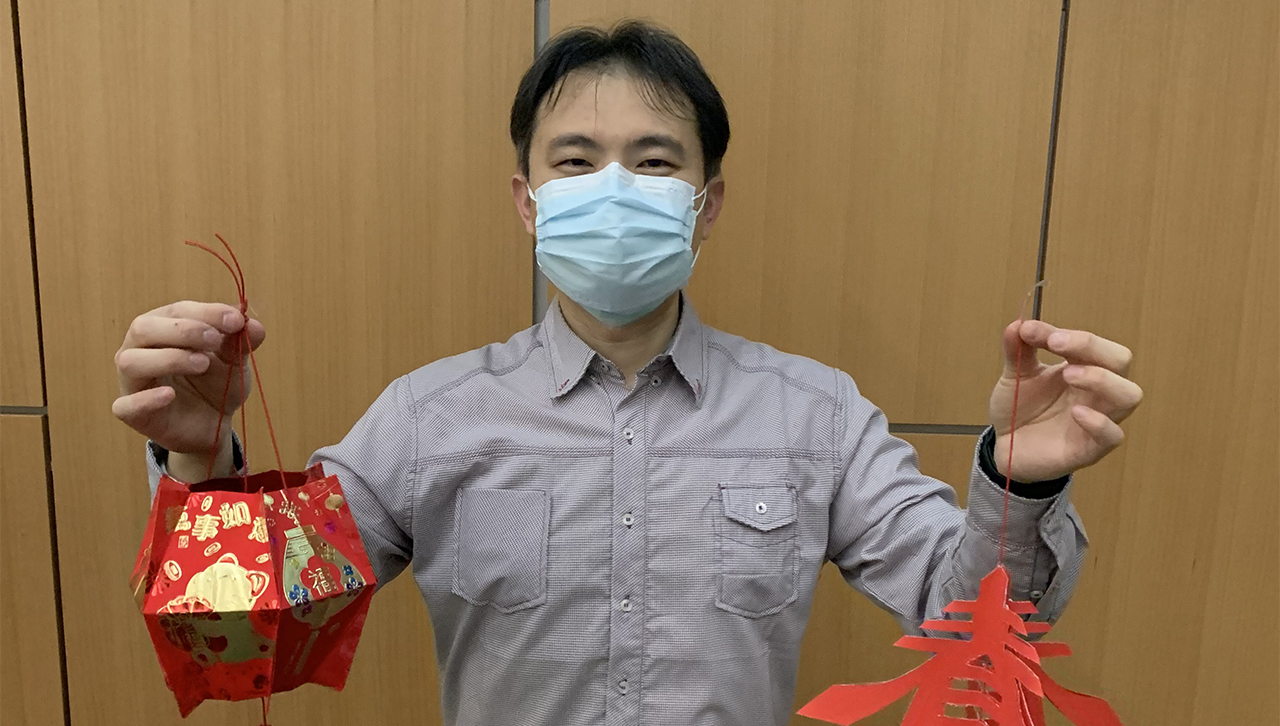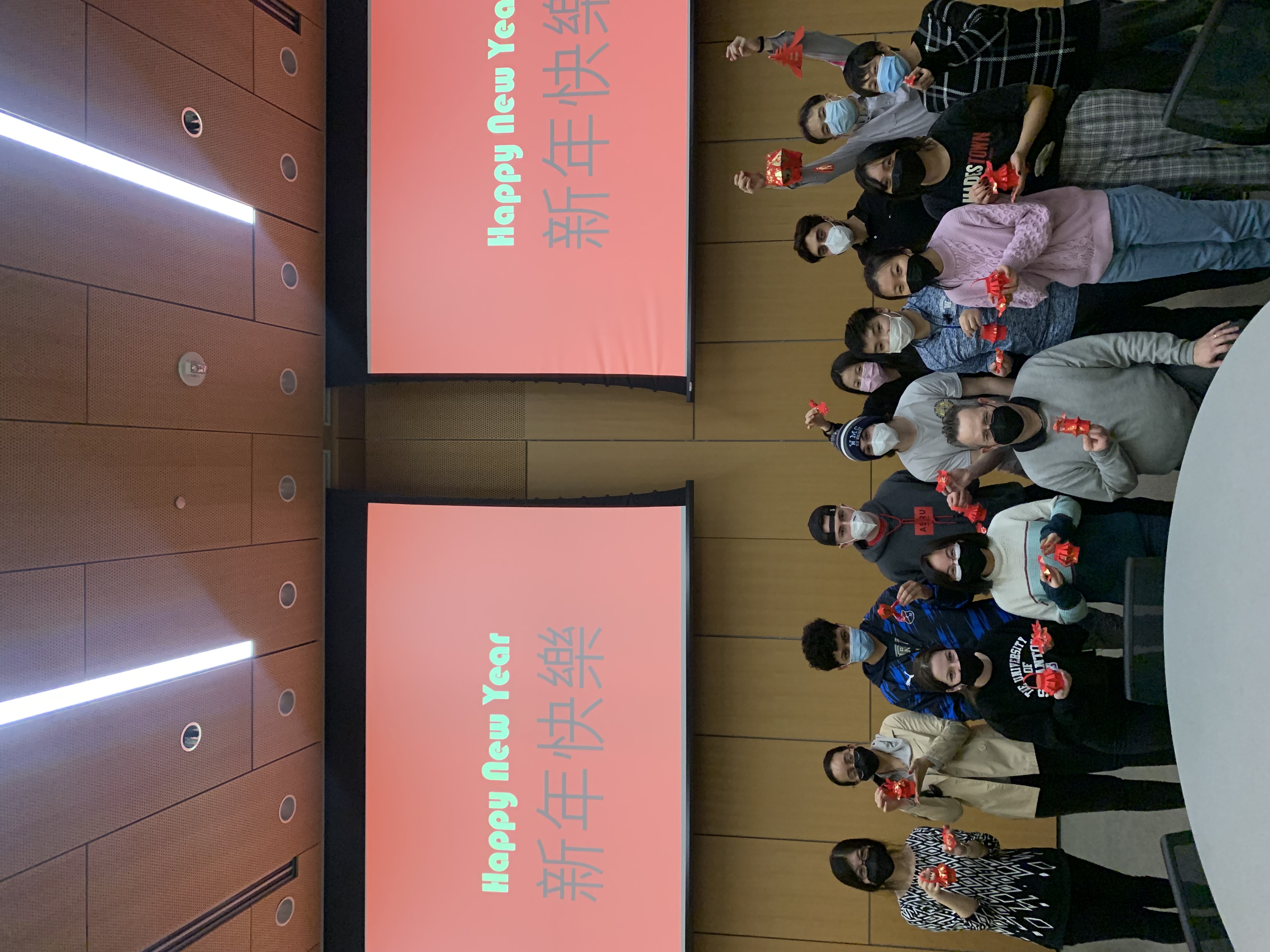Lunar New Year Celebrated With Chinese Paper Cutting

After a year restricted to virtual events due to COVID-19, the World Language & Culture Department event returned! To welcome the arrival of the Chinese Lunar New Year, Chun-Sheng Su, a Chinese instructor from Taiwan, held a paper-cutting activity and presented the culture of red envelopes, the meaning of fish, and how people celebrate the Lunar New Year in China. Also, he showed a wealth of paper-cutting works.
 Paper-cutting is a traditional Chinese arts and crafts product. "Paper-cutting," as the name suggests, is a form of folk art in which patterns are cut or carved on a piece of paper to decorate objects or decorate traditional folk festivals and activities. Visually, it gives a transparent feeling and artistic enjoyment. Chinese paper-cut art, through a pair of scissors and a piece of paper, can express all kinds of joys, sorrows and joys in life. For beginners, it is very beneficial to know the steps of making paper cuttings.
Paper-cutting is a traditional Chinese arts and crafts product. "Paper-cutting," as the name suggests, is a form of folk art in which patterns are cut or carved on a piece of paper to decorate objects or decorate traditional folk festivals and activities. Visually, it gives a transparent feeling and artistic enjoyment. Chinese paper-cut art, through a pair of scissors and a piece of paper, can express all kinds of joys, sorrows and joys in life. For beginners, it is very beneficial to know the steps of making paper cuttings.
People from different places learned about how the Lunar New Year is celebrated in China, the history of red envelopes, and how to make Chinese paper cutting art. The event started at 7 p.m. in Leahy Hall 235. Under Professor Su's guidance, students, faculty and staff used the red envelopes, made lanterns and goldfishes.
“I felt satisfied and accomplished because all participants completed these two artworks. They not only learned the symbol of lantern and fish but also had self-made decorations at home for the Lunar New Year,” said Su.
Want to learn more about Taiwan or the other countries, cultures, and languages represented in the World Languages and Cultures? Come to the TA Talks (meal provided & registration required):
Spain, Palestine, and Taiwan
Thursday, March 31
11:30 a.m. - 1:00 p.m.
https://bit.ly/2022tatalk1
Japan, Germany, and France
Thursday, April 28
4:30 p.m. - 6:00 p.m.
https://bit.ly/2022TATalk2
If you have any questions about the World Languages and Cultures Department’s Chinese program or are interested in learning about other cultural events offered by the department, be sure to check out the department’s Instagram, Facebook and Twitter or email Hannah Jackson at hannah.jackson@scranton.edu






